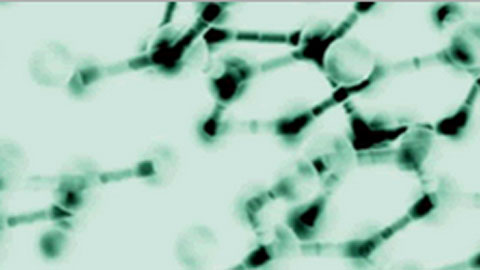Eight UAB lecturers receive the ICREA 2014 Academia Award

19/02/2015
The ICREA Academia Programme aims to foster excellence in research among lecturers and researchers from Catalonia's public universities. A total of 30 lecturers received the award this year. The UAB is the second university in number of researchers awarded.
The UAB lecturers awarded the prize are:
Juan Antonio Barceló, lecturer of the Department of Prehistory. He specialised in the development of archaeological techniques and in the theory of this discipline. He has developed several computer applications, especially in issues related to spatial analysis, multidimensional statistics, artificial intelligence and computer-assisted visualisation, and has published several papers on these subjects. As archaeologist, he has worked on digs in Spain, Portugal, Italy, Syria, Nicaragua and Argentina.
Mireia Duñach, professor of the Department of Biochemistry and Molecular Biology and director of the group in Intercellular Contact in Epithelial Cells (Grup de Contactes Intercel·lulars en Cèl·lules Epitelials), which focuses on the study of the Wnt signalling route, a cascade which is activated in many epithelial tumours and particularly in colon tumours. The final consequence of this via is the stabilisation of the beta-catenin protein, its translocation to the nucleus and the activation of the transcription of the gene involved in the tumours development. The stabilisation of the beta-catenin protein depends on the blockage of the GSK3 kinase, but a full Wnt response requires additional signals which is what the group intends on characterising. The group also studies how the via is activated through other non-canonical Wnt factors, given that these do not involve the beta-catenin protein.
Jordi Martínez-Vilalta is lecturer of the Department of Plant and Animal Biology and Ecology, CREAF researcher and honorary researcher of the University of Edinburgh, UK. His research focuses on the improvement of knowledge of the functioning of natural systems and their response to environmental changes. In particular, he studies the impact droughts and other disturbances have on the structure and functioning of forests, and how their ecosystem services could be altered in a context of climate change.
Roser Nadal is lecturer of the Department of Psychobiology and Health Sciences Methodology and a member of the Institute of Neuroscience. Her research studies the mechanisms through which stress increases the vulnerability of psychopathologies, such as anxiety, addiction, post traumatic stress, depression and impulsiveness, by using animal models. She is especially interested in the individual differences in reactions to stress and the factors involved when resisting their negative effects. She has studied gender differences in vulnerability to stress and the long-term effects of first-time stressful experiences.
David Pérez-Castrillo, lecturer of the Department of Economics and Economic History. His main lines of research are Innovation in Economics, Contract Theory and Game Theory. In addition, he is particularly interested in the analysis of several aspects of the innovation process, from the study of research collaboration to the creation, development and establishment of technology-based businesses.
Alex Pomarol is professor of the Department of Physics. His research aims to understand the fundamental laws of elementary particles, with special interest in the origin of their mass. The recent discovery of the Higgs particle at the Large Hadron Collider (LHC) at CERN (Geneva) offers crucial information about these issues, given that the properties of Higgs is one of his main interests.
Gonzalo Pontón is lecturer of the Department of Spanish Studies and researcher of the group PROLOPE. Gonzalo Pontón has specialised mainly in Hispanic literary genres and works from the 15th to 17th centuries. Among his lines of research there is the history of literary ideas, epistle scriptures, historiographic scriptures and textual criticism. He has edited the works of Cervantes, Lope de Vega and short story narrators from the 16th and 17th century. His immediate project is to study the inaugural process of the commercial theatre in Spain (1575-1590) within the European context, which mainly included Italy, England and France.
María José Vega is professor of the Department of Spanish Studies. Her main line of research is European literature and poetry of the 16th century, with a comparative and supra-disciplinary approach. Author of numerous monographs, she has edited and translated treaties, poems and dialogues in Latin, Spanish and Italian from the 15th and 16th centuries. She is currently the president of the Society of Medieval and Renaissance Studies (Sociedad de Estudios Medievales y Renacentistas).